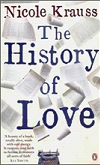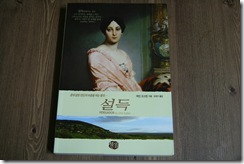|
Q: In The Kite Runner, do you create characters and events that are based on personal recollections or is the story purely fictional?
'연을 쫏는 아이'에서 말입니다. 그 캐릭터들과 사건들이 개인적 회상에 기반하여 창조된 것인가요? 아니면 완전히 소설적 허구인가요?
A: The story line of my novel is largely fictional. The characters were invented and the plot imagined. However, there certainly are, as is always the case with fiction, autobiographical elements woven through the narrative. Probably the passages most resembling my own life are the ones in the US, with Amir and Baba trying to build a new life for themselves. I, too, came to the US as an immigrant and I recall vividly those first few years in California, the brief time we spent on welfare, and the difficult task of assimilating into a new culture. My father and I did work for a while at the flea market and there really are rows of Afghans working there, some of whom I am related to.
내 소설의 이야기 흐름은 크게 허구입니다. 각 캐릭처들은 창조된것이고 플롯도 상상의 산물이죠. 그러나 여느 픽션의 경우들이 그렇듯, 전 내러티브를 관통하는 자전적 요소들이 분명 존재합니다. 아마도 나 개인의 삶과 거의 닮은 여정이라면 미국에서의 삶들, Amir와 Babar가 스스로 새 삶을 개척해나가는 모습들 이 그렇습니다. 나 역시 이민자로 미국에 왔고 캘리포니아에서의 첫 몇해들을 미미하게나마 기억합니다. 짧은 기간이나마 우린 사회복지시설에서 지냈던 것, 그리고 새로운 문화에 동화되기 위한 어려운 문제들... 내 부친과 나는 한동안 벼룩 시장에서 일했답니다. 실제로 아프간 사람들이 거기서 일하고 있구요.
I wanted to write about Afghanistan before the Soviet war because that is largely a forgotten period in modern Afghan history. For many people in the west, Afghanistan is synonymous with the Soviet war and the Taliban. I wanted to remind people that Afghans had managed to live in peaceful anonymity for decades, that the history of the Afghans in the twentieth century has been largely pacific and harmonious.
나는 냉전기 이전의 아프가니스탄 사람들에 관해 쓰고 싶었습니다. 왜냐면 근대 아프간 역사에 있어 그 시기는 대략 잊혀진 시기이기 때문이져. 많은 서구인들에게 아프가니스탄은, 냉전(? Soviet War - 미국과 소련간의 대리전쟁이 그곳에서 펼쳐진 시기를 말함)과 '탈레반'의 동의어 같은거죠. 저는 아프간인들이 수세대에 걸쳐 평화롭게 살아가려 했던, 그저 이름 모를 '보통사람'들이었다는 점을, 20세기의 아프간 역사는 대개는 평화롭고 조화로웠던 역사를 지니고 있었음을 만인에게 환기시키고 싶었습니다.
Q:What are your recollections of the last days of the Afghan monarchy and the subsequent invasion of the Soviet forces?
아프간 왕정의 미지막 나날들에 대한 당신의 회상들은 무엇인가요? 그리고 연이은 소련 침공은요?
A: Kabul was a thriving cosmopolitan city with its vibrant artistic, intellectual and cultural life. There were poets, musicians, and writers. There was also an influx of western culture, art, and literature in the '60s and '70s. My family left Afghanistan in 1976, well before the Communist coup and the Soviet invasion. We certainly thought we would be going back. But when we saw those Soviet tanks rolling into Afghanistan, the prospect for return looked very dim. Few of us, I have to say, envisioned that nearly a quarter century of bloodletting would follow.
카불은 왕성한 예술적,지적, 문화적 삶으로 차있던 번영하던 국제적 도시였습니다. 시인들, 음악인들, 그리고 작가들도 존재했죠. 60,70년대의 서양문화와 예술, 문학 또한 역시 유입되었었던 곳이구요. 나의 가족은 1976년에 아프가니스탄을 떠났습니다. 공산 쿠데타와 소련침공이 발생하기 전이죠. 우린 어느 정도는 우리가 돌아갈 수 있을거라고 생각했었습니다. 그러나 그 소련 탱크가 아프가니스탄을 굴러다니는 것을 보았을 때, 귀향에대한 전망은 정말 희미해보였죠. 우리 중 근 25여년간 유혈사태가 잇따르리라고 예견한 사람은 극히 적었습니다.
Q: Is Amir's youth synonymous with your adolescence?
아미르의 유년시절은 당신의 청소년기와 비슷한가요?
A:I experienced Kabul with my brother the way Amir and Hassan do: long school days in the summer, kite fighting in the winter time, westerns with John Wayne at Cinema Park, big parties at our house in Wazir Akbar Khan, picnics in Paghman. I have very fond memories of my childhood in Afghanistan, largely because my memories, unlike those of the current generation of Afghans, are untainted by the spectre of war, landmines, and famine.
내 형제랑 나는, 아미르와 하싼이 지내온 것과 같이 카불에서 살았었죠 : 여름엔 기나긴 학교생활, 겨울의 연날리기 대회, 극장에서 보았던 존 웨인의 서부영화, 와지르 악바 칸에 있는 우리집에서의 큰 파티들, 파흐만에서의 소풍. 아프간의 최근 세대들의 기억과는 달리, 나는 아프가니스탄에서의 나의 유년기에 대해 매우 정다운 기억들을 갖고 있습니다, 전쟁과 지뢰, 기아등의 기억들로 점철되지 않은(더럽혀지지않은) 그런 기억들이죠.
Q: Can you shed light on the role of women at the time?
그 시절의 여성들의 역할 관해 조명하실수 있습니까?
A: I came from an educated, upper middle-class family. My mother was a Persian and history teacher at a large high school for girls. Many of the women in my extended family and in our circle of friends were professionals. In those days, women were a vital part of the economy in Kabul. They worked as lawyers, physicians, college professors, etc., which makes the tragedy of how they were treated by the Taliban that much more painful.
나는 교육받은 중상층 가정 출신입니다. 나의 어머니는 큰 여고에서 페르시아어와 역사를 가르치는 선생님이셨습니다. 나의 전체 가계와 지인들의 범주에선 많은 여성들이 전문직 여성들이었습니다. 그 시기에 카불의 경제적 측면에서 여성들은 중추적이었죠. 변호사, 의사, 대학교수 등등으로 일했었습니다만..그들이 어떻게 탈레반에 의해 처우되었는지에 관한 비극은 더욱 고통스러운 것입니다.
Q: Your novel touches on internal strife before and during the Taliban government but lacks a strong focus on women.
당신의 소설은 탈레반정권 시기와 그 이전 시기의 내분을 다룹니다만 여성들에 대한 집중적 포커스는 부족합니다.
A: My own background is fairly liberal and so this notion of 'protecting women from outside intrusion' is not in my nature, nor in my upbringing. The Kite Runner is a story of two boys and a father, and the strange love triangle that binds them. It so happens that the major relationships in the novel are between men, dictated not by any sort of prejudice or discomfort with female characters, but rather by the demands of the narrative. The story of what has happened to women in Afghanistan, however, is a very important one, and fertile ground for fiction. I have started a second novel set in Afghanistan, and so far all of the major characters are shaping up as women.
저의 자란 배경은 정말 자유주의적이었고, 그래서 외부침략으로부터 여성들을 보호해야한다는 그런 개념은 제 천성도 아니고 훈육지침도 아니었어요. '연을 쫏는 아이'는 두 소년과 한 아버지의 이야기입니다, 그리고 색다른 사랑의 삼각관계가 그들을 묶고 있죠. 책속의 주된 관계형성은 남자들간에서 벌어집니다. 여성들에 대한 어떤 선입견이나 불편함으로 그렇게 기술된게 아니라, 단지 서술상 필요성에 의해 그런 겁니다. 하지만, 아프가니스탄의 여성들에게 벌어지는 이야기는 참으로 중대한 것이고 또 소설의 자양분이 되기도 하죠. 저는 아프가니스탄에서 제 두번째 소설을 착수하기 시작했습니다. 그리고 완전히 모든 주된 캐릭터가 여성으로 그려지고 있죠.
Q: Given the present state of politics and the American agenda in the region, how do you perceive the future of Afghanistan ?
지역적으로 현 정세와 미국의 의사를 감안했을 때, 당신은 아프가니스탄의 미래에 대한 전망을 어삐 여기십니까?
A: I returned to Kabul this past March, after a 27-year absence. I came away with some optimism but not as much as I had hoped for. The two major issues in Afghanistan are a lack of security outside Kabul (particularly in the south and east) and the powerful warlords ruling over the provinces with little or no allegiance to the central government. The other rapidly rising concern is the narcotic trade which, if not dealt with, may turn Afghanistan into another Bolivia or Colombia.
27년의 부재끝에 올해 지난3월에 카불에 돌아왔습니다. 제가 희망 할수 있는 만큼까진 아니었어도 약간의 '낙관(희망)주의'를 지니고 왔었죠. 아프가니스탄의 두가지 메이저 이슈는 카불 이외지역(특히나 남부와 동부)의 치안부재, 그리고 중앙정부와 유대가 적거나 아주 없는 강력한 토호들의 지배입니다. 그외 급속히 떠오르는 문제는 마약거래같은거죠, 이건 손대지 않으면 아프가니스탄이 제2의 볼리비아나 콜롬비아가 될 지도 모릅니다.
Equally important is the lack of cultivable land for farmers, a profound problem when you take into account that Afghanistan has always largely been an agricultural country, and that even before the wars destroyed lands and irrigation canals, only 5 per cent of the land was cultivable. A great deal remains to be done in Afghanistan and the jury is out as to whether the international community has the commitment and the patience to see the rebuilding process through.
마찬가지로 중요한, 심각한 문제는 농부들이 경작할 땅이 부족하다는 것입니다. 아프가니스탄은 줄곧 농경국가이어왔어요, 그게 전쟁이 농지를 파괴하기 전이긴 하죠, 단지 그 땅의 5퍼센트만이 경작이 가능했습니다. 아프가니스탄에서 이루어져야할 큰 협정이 남아있고, 국제기구가 재건설 과정 전반을 알기위한 '개입/의무'과 '인내'를 갖고있는지 여부에 대한 판정(재판).......................
This last month, though, I have seen some cause for optimism. The Bush administration tripled its aid package to Afghanistan. Karzai finally (and courageously) announced that warlords will be forbidden from holding office in the future government. And finally, NATO agreed to expand the peacekeeping forces to troubled areas outside of Kabul.
지난달 나는 낙관주의의 일부단서들을 보았습니다. 부쉬정권의 아프가니스탄에 대한 원조를 세배로 늘렸죠.
Q: Why did you return after 27 years?
A: I returned to Afghanistan because I had a deep longing to see for myself how people lived, what they thought of their government, how optimistic they were about the future of their homeland. I was overwhelmed with the kindness of people and found that they had managed to retain their dignity, their pride, and their hospitality under unspeakably bleak conditions.
I did see plenty that reminded me of my childhood. I recognised my old neighbourhood, saw my old school, streets where I had played with my brother and cousins. And, like Amir, I found my father's old house in Wazir Khan.
Q: Lastly, what were the reactions of Afghans in exile in the US after reading your novel?
A:I get daily e-mails from Afghans who thank me for writing this book, as they feel a slice of their story has been told by one of their own. So, for the most part, I have been overwhelmed with the kindness of my fellow Afghans. There are, however, those who have called the book divisive and objected to some of the issues raised in the book, namely racism, discrimination, ethnic inequality etc. If this book generates any sort of dialogue among Afghans, then I think it will have done a service to the community.
Q: Can you tell me about your second novel?
A:I am not sure how it will shape up, whether it will become one woman's story or a family saga told from various women's viewpoints.
But it will also be set in Afghanistan's pre-Taliban days and, I suspect, in present-day America. I wish I could tell you more but I don't know a whole lot more myself about it. | 










